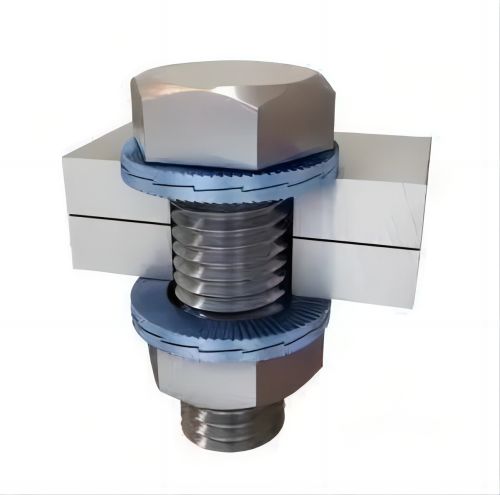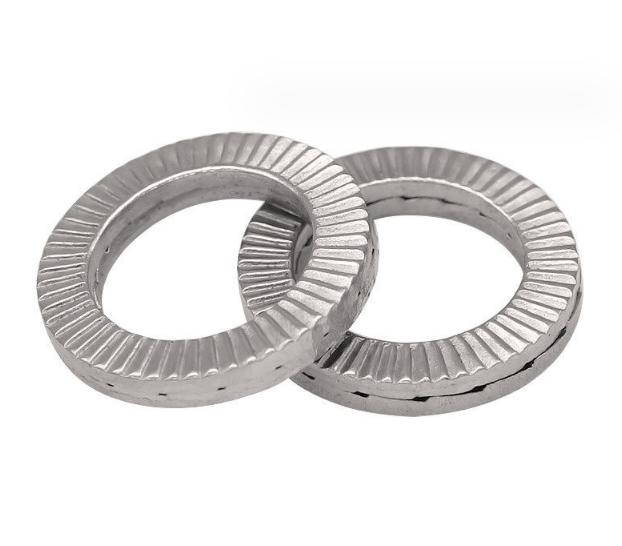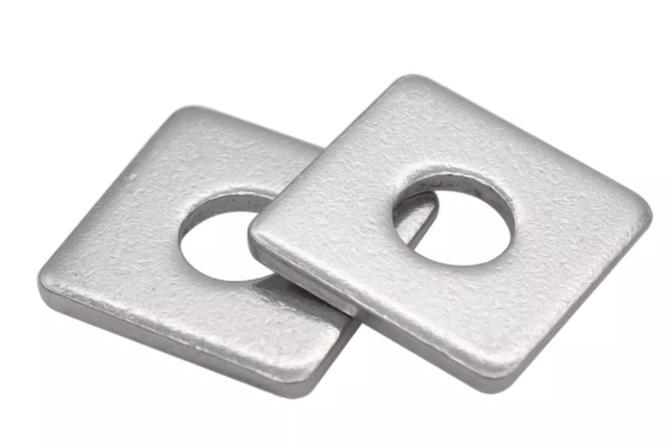When to Use Washers with Bolts?
Bolts and washers are essential fastener components that are widely used in construction, machinery, and various DIY projects. While bolts hold materials together, washers provide critical support. But when to use washers with bolts, and why does it matter? In this article, we will explore the situations and importance of using washers with bolts and provide guidance on when and how to use them effectively.

The Purpose of Using Washers
Washers are thin, flat discs with a hole in the center that are typically made of metal or plastic. When used in conjunction with bolts, washers perform various critical functions.

| Function | Description |
| Load Distribution | Distributes the load of a fastener over a larger area, reducing stress concentrations and preventing damage to the material being fastened. |
| Surface Protection | Acts as a protective barrier between the fastener and the surface it contacts, preventing scratching, marring, or deformation during installation and use. |
| Compensation for Imperfections | Compensates for irregularities in mating surfaces by providing a level surface for the fastener to tighten against, ensuring a secure connection despite surface imperfections. |
| Friction Reduction | Helps reduce friction between the fastener and the surface, making installation easier and preventing seizing or sticking over time. |
| Loosening Prevention | Certain types, such as lock washers or spring washers, apply additional tension to the fastener, preventing it from loosening due to vibration or other forces. |
| Electrical Insulation | Insulating washers made of rubber or plastic electrically isolate the fastener, preventing electrical conductivity and ensuring safety in electrical applications. |
| Shock and Vibration Absorption | Absorbs shock and vibration in mechanical systems, reducing the risk of fatigue failure or damage to components in applications subjected to high levels of vibration. |

Key Situations Where Washers are Used with Bolts
1. Protecting Soft Materials
A washer is essential when working with soft or brittle materials such as wood or plastics. When subjected to the high pressure of a bolt head or nut, these materials are prone to deformation or splitting. A washer spreads the pressure, lowering the risk of damage.
2. Gap Filling
Washes can fill the gap between the bolt’s head or nut and the material being fastened, providing uniform clamping force. This is especially important if the hole is oversized, as the bolt would not otherwise make proper contact with the material.
3. Corrosion Prevention
In outdoor or high-moisture environments, using a washer made of corrosion-resistant materials, like stainless steel, helps protect the connection from rust and corrosion. It acts as a barrier between the metal components, preventing direct contact and the subsequent formation of rust.
4. Reducing Friction
Washers can help reduce friction between the bolt and the material, making the fastener easier to tighten. This is especially useful when you need to achieve a specific torque or when working with materials that can be damaged by excessive friction.
5. Vibration Dampening
Washers play an important role in preventing bolts from coming loose in applications subject to vibrations, such as machinery or automotive components. The washer acts as a buffer, maintaining the clamping force and ensuring the connection remains secure over time.

6. Thin Materials
When subjected to high pressure, thin materials, such as sheet metal, are more likely to deform or tear. Washers help to spread the load over a larger area, lowering the risk of damage. In some cases, extra-large washers or multiple washers may be used to provide additional support for thin materials.

7. Thermal Expansion Management
Washers with thermal insulating properties help mitigate the effects of differential thermal expansion between bolted components. They minimize stress buildup and potential damage caused by temperature variations.
8. Preload Control
Washers, such as Belleville washers or spring washers, assist in maintaining proper preload in bolted joints. They compensate for settling, relaxation, or thermal expansion, ensuring consistent clamping force and joint integrity over time.
9. Assembly Lubrication
Some washers are coated with lubricants or anti-seize compounds to facilitate smoother tightening and minimize friction between the bolt and the surface. This simplifies installation and reduces the risk of galling or seizing.
Conclusion
Knowing when to use washers with bolts is critical for maintaining structural integrity and preventing material damage. When in doubt, it’s a good idea to include a washer, which provides additional support and protection for your fastened joints. The proper use of washers not only improves connection performance but also contributes to the overall safety and reliability of your projects.









